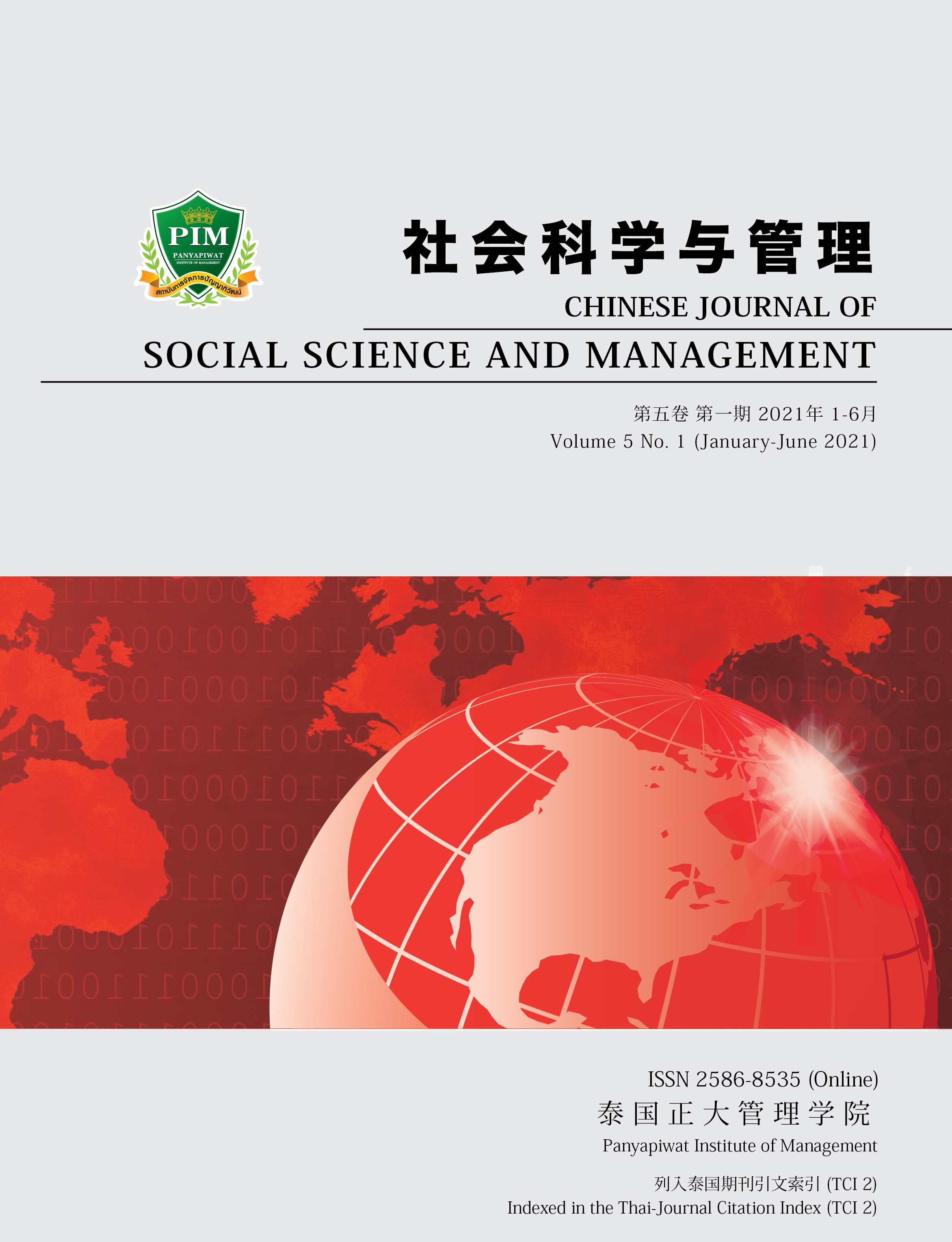THE INFLUENCE OF ENTERPRISE CULTURE ON EMPLOYEE PERFORMANCE——TAKING LOYALTY AS THE MEDIATING VARIABLE
Main Article Content
Abstract
With the development of the world economy, the ability to adapt to the complex and changeable market situation and form core competitiveness in the market competition is the key to the construction of enterprise culture. This paper uses literature research, questionnaire survey, empirical analysis, and other methods to study the relationship among corporate culture, employee performance, and employee loyalty. It conducted analysis and verification by description, reliability and validity, correlation, regression, etc. The results showed that corporate culture not only has a positive impact on employee performance, but also has an effect on employee performance from the four dimensions of participation, aspiration, adaptability, and sense of mission.
Article Details
Chinese Journal of Social Science and Management Editorial Division
The Office of Research and Development, Panyapiwat Institute of Management
85/1 Moo 2, Chaengwattana Rd., Bang Talat, Pakkred, Nonthaburi 11120, Thailand
Tel. 02 855 01048 E-mail: cjssm@pim.ac.th
References
Cameron, K. S., & Quinn, R. E. (2011). Diagnosing and Changing Organizational Culture: Based on The Competing Values Framework. New Jersey: John Wiley & Sons.
Denison, D. R., Haaland, S., & Goelzer, P. (2003). Corporate Culture and Organizational Effectiveness: Is There a Similar Pattern Around the World. Advances in Global Leadership, 3(2), 205-227.
Frederick, F. (2003). Loyalty Rules: How Today’s Leaders Build Lasting Relationships. Boston: Harvard Business School Press.
Han, Y., & Liao, J. Q. (2006). Research on Performance Evaluation Model Based on Different Organizational Forms. Nankai Business Review, 9(3), 61-66. [in Chinese]
Hu, X. Q. (2013). Corporate Culture Construction from the Perspective of Employee Performance Improvement. Science and Education Innovation, 10(2), 125-135. [in Chinese]
Katz, D., & Kahn, R. L. (1978). The Social Psychology of Organizations. New York: Wiley.
Liu, Z. Y. (2016). Research on the Influence of Corporate Culture on Employee Performance. Modern Corporation Culture, 33, 7-8. [in Chinese]
Lok, P., & Crawford, J. (2004). The Effect of Organizational Culture and Leadership Style on Job Satisfaction and Organizational Commitment. Journal of Management Development, 32(2), 24-35.
Meyer, J. P., & Allen, N. J. (1991). A Three-Component Conceptualization of Organizational Commitment. Human Resource Management Review, 1(1), 61-89.
Porter, L. W., Steers, R. M., Mowday, R. T., & Boulian, P. V. (1974). Organizational Commitment, Job Satisfaction, and Turnover among Psychiatric Technicians. Journal of Applied Psychology, 59(5), 603-609.
Randall, D. M., Fedor, D. B., & Longenecker, C. O. (1990). The Behavioral Expression of Organizational Commitment. Journal of Vocational Behavior, 36, 210-224.
Rao, F. (2013). Research on the Influence of Corporate Culture on Employee Performance. Master’s Thesis, Southwest University of Science and Technology. [in Chinese]
Rao, F. (2013). The Influence of Corporate Culture on Employee Performance. Master Dissertation, Southwest University of Science and Technology.
Zhang, X., & Han, X. (2008). Development and Application of Evaluation Model for Corporate Culture. Science of Science and Management of S. & T., 329(1), 149-153. [in Chinese]


